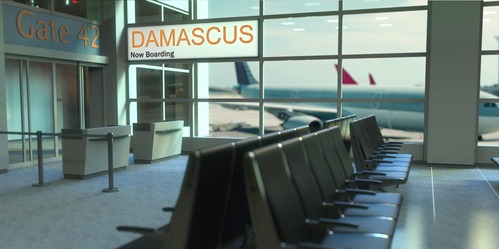How regional engagement is supporting Syria’s economic renaissance
It was a sight to behold when US President Donald Trump announced a cessation of sanctions on Syria to a rapt audience in Saudi Arabia this May, an announcement that elicited thunderous applause from the crowd and drew Saudi Crown Prince Mohammed bin Salman to his feet in appreciation.
In the aftermath of the announcement, big-ticket investments and support have come Syria’s way, in an attempt to revive its battered economy and offer a new leash to a country reeling from a confluence of challenges for more than a decade.
Qatar, Saudi Arabia and the UAE were among the first countries to endorse the new leadership of President Ahmad Al Shara, that came at the heels of the erstwhile premier Bashar Al Assad’s ouster.
Syria signed $14 billion worth of investment agreements this month, including a $4 billion deal inked with a consortium led by Qatar’s UCC Holding to redevelop Damascus International Airport, a $2 billion Damascus Metro project with the UAE’s national investment corporation and a $2 billion plan for Damascus Towers with Italy-based UBAKO.
Other real estate projects include a $500 million deal for the Baramkeh Towers project, and a $60 million agreement for the Baramkeh Mall.
These were preceded by a slew of 47 agreements last month valued at around $6.4 billion, with infrastructure and real estate deals worth more than $2.93 billion. A preliminary agreement was signed between the Saudi Tadawul Group and the Damascus Securities Exchange in July.
Beth Morrissey, managing partner at Kleiman International Consultants, told Salaam Gateway earlier this month that the re-opening of the Damascus Securities Exchange is widely viewed as a major achievement.
Dubai-based logistics company DP World also inked a 30-year $800 million development agreement in July to modernise Tartus, Syria’s second-largest port and a key gateway to trade routes across Levant, Europe and North Africa.
In May, Syria signed a preliminary agreement with a consortium of American and Turkish companies led by Qatar’s UCC Holding to develop power generation projects valued at approximately $7 billion.
Four power plants will be developed under the agreements, with an installed generation capacity of 4,000 megawatts and a 1,000 MW solar power plant. Syria has also signed a protocol with Turkey to establish a joint business council to open prospects for economic cooperation.
The country’s aviation industry is taking off as well, with regional airlines resuming services. Turkish Airlines restored flights to Aleppo in August for the first time in over a decade.
The Turkish national carrier joined Dubai-based Emirates Airlines, Kuwait’s Jazeera Airways, and Saudi low-cost carrier Flynas to kickstart Syria’s aviation space and rebuild travel links across the region.
Despite the windfall of investment, Syria needs a minimum of $1 trillion dollars to reconstruct, Dr. Mohammad Nidal Al-Shaar, Syria’s minister of economy and industry, estimated in May.
“We need at least $1 trillion to reconstruct and rebuild a new Syria,” he added. “There is an understanding and consensus within the international community, especially from the Middle East, that Syria has to become a stable country. They are all looking forward to protecting Syria from further chaos.”
Syria’s economy is expected to grow a nominal 1% in 2025, following a contraction of 1.5% last year, the World Bank forecasted in a report released in July. Growth prospects are a stark contrast to the 2000-2010 period during which the country’s GDP grew at an average annual rate of 4.8%.

During the 2010-2022 period heavily marked by conflict, Syria’s GDP shrank 53% between 2010 and 2022, with its annual crude oil production slipping 90% between 2010-2024. Investment contracted from an average of 19.2% of GDP in 2006–2010 to an average of 14.2% during 2011–2022.
“A growing regional engagement, particularly through Türkiye and some Gulf states, may support economic recovery and attract investment,” the World Bank report added.
Syria’s recovery will require a heavy lift from multiple actors, including countries and the Syrian diaspora living in them. Syrians living abroad can contribute to Syria’s economic recovery in multiple ways, notes Conor Clifford Murphy, partner at DinarStandard.
“The Syrian diaspora can advocate for economic opportunities in Syria, help connect local businesses with international markets, and promote Syria as a viable investment destination. Many Syrian expatriates and business leaders are interested in participating in the reconstruction of Syria’s infrastructure and industries, further stimulating economic recovery.”

Salaam Gateway